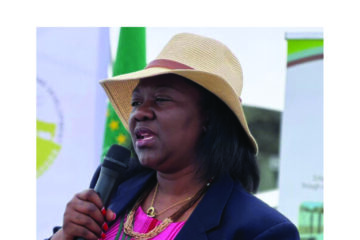Hertta-Maria Amutenja
Many children are excited to return to their studies, but for some, the new school term brings the fear of being bullied.
Head of the Human Rights Desk of the Landless People’s Movement (LPM), Joyce Muzengua, shared her concerns over the issue, revealing how her child had been a victim of bullying due to his intelligence.
“Looking back, I realise that there were signs I failed to recognize. My son is usually such a vibrant and curious child, always asking endless questions. But for a period, he became unusually quiet and reserved,” she said.
Despite the emotional toll, Muzengua did not transfer her child to another school, as she believes the school is taking steps to address the ongoing issue.
“The school is now curbing bullying, and I hope my son’s situation will improve,” she said.
Bullying remains a widespread issue in schools, with its emotional and academic effects being a concern for both students and parents.
Last year, High Court Judge Eileen Rakow ordered a Grade 10 learner in the German stream of the Deutsche Höhere Privatschule to be transferred to another class.
This is after a clinical psychologist reported that the pupil’s perception was that he was being bullied by a teacher, which led to his poor performance.
Bullying has also led to the death of many children, like Christopher Boois in 2023, who was a learner at Kronlein Primary School in Keetmanshoop.
Boois, who was in Grade 5, took his own life after bullies tore up his report card and his shirt.
Elias Tuhafeni Jafet, the principal of Oshimwaku Combined School in the Ohangwena region, explained how his school handles bullying.
“The school has rules that are well made clear to learners. Bullying is an offence, and if learners commit it, punitive procedures will be followed,” he said.
Jafet added that the school uses the ministry’s school safety framework to ensure the safety of learners.
He said when bullying occurs, schools invite parents or caregivers to attend disciplinary hearings of the children.
“When a learner violates school rules through bullying, parents are invited to a disciplinary hearing, and they are advised to address the issue at home with their children,” Jafet noted.
However, he added that, despite all the effort that the school is putting into curbing bullying, there is also a lack of support from some parents.
“A challenge we face is minimum support from parents, especially when we invite them for disciplinary hearings, and they don’t show up,” he said.
To further combat bullying, Oshimwaku Combined School has appointed a life skills teacher to address the issue.
Fortune Simbarashe Mutemaringa, principal at Gardener Academy Private School, acknowledged that bullying is an issue in their school, as it is in many others.
“Bullying is across the board. We need to bring children into a position where they can identify it, understand it, and have tools to overcome it,” he said.
He explained how the school uses a structured approach to handle bullying.
“We teach learners the i5 process: talk friendly, talk firmly, ignore, walk away, and tell a teacher or parent. This empowers learners to address bullying independently before escalating the issue,” Mutemaringa said.
He said the school also maintains records of incidents and holds role plays, educational workshops, and parent-teacher collaborations to address the problem holistically.
According to Sanet Steenkamp, executive director at the Ministry of Education, bullying is common in schools across the country.
Data from a survey in 2013 reveal that more than 50% of learners reported experiencing bullying or being involved in physical fights.
The types of bullying identified include physical, verbal, non-verbal, social, sexual, and cyberbullying.
“Bullying is a common occurrence in all schools.
According to the Global School Health Survey (2013), 51.8% of learners reported being bullied at least once in the last 30 days.”Steenkamp stated.
She further noted that while there is no recent data on the specific types of bullying, violence in schools is clearly widespread, with physical, verbal, and social bullying identified as the most common forms.
The Ministry has highlighted that bullying is treated as a serious offence, with schools guided by policies such as the Basic Education Act, 2021, and the National School Safety Framework, 2018.
These policies aim to create a safe environment for all learners.
Steenkamp explained that schools address bullying on a case-by-case basis.
“Schools try to involve both the victim and the bully, as well as their parents or caregivers. They are guided by several policies, including the Basic Education Act and the National School Safety Framework,” she said.




